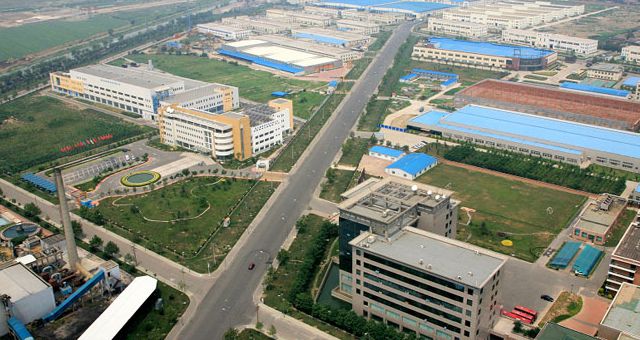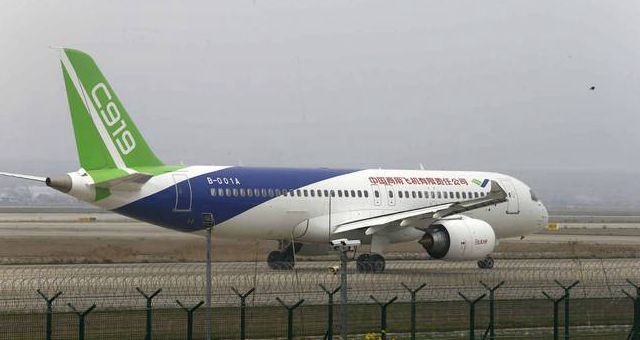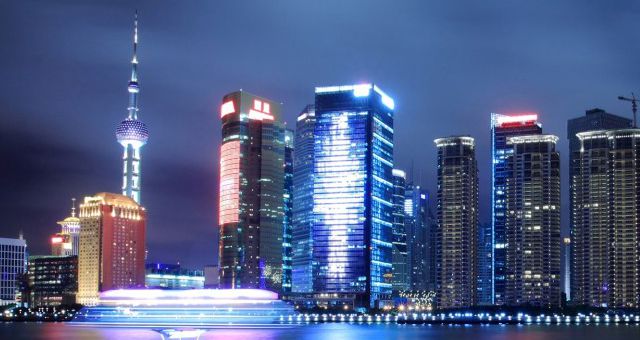
The efficient site selection service has been become the “special business card” for Tanikawa
Recently, with the unremitting promotion by the Tanikawa, the new investment project of the Le Rui Ke Venture Capital Development Group has been started official operation in the Xiqing district, Tianjin. The project is located at Saida international Industrial City in Xiqing Development Zone, with a building area of about 4,100 square meters. The registered company is Tecom Biotech (Tianjin) Co., Ltd., which is mainly engaged in research and development and production of functional staple food and nutrition powder. The Le Rui Ke Venture Capital Development Group is founded in 2010, focused on investing to health, science and technology and culture industry. The headquarters of Le Rui Ke is located in Beijing, and plans to set up R & D and production base in Beijing, Tianjin and Hebei. Due to the high requirements of the factory conditions, they have visited more than one field, but unsuccessfully, site selection was suspended. But Tanikawa did not stop the pace of site selection for the enterprise, and managed a number of experienced site selection consultants in Tianjin, Shandong, Hubei and other places to do in-depth research. With years of rich experience, Tanikawa locked Xiqing Economic Development Zone in short time. In the development zone, the biopharmaceutical industry has a high agglomeration degree, and it has unparalleled advantages in terms of policies, facilities and services. Finally, with the cooperation between Tanikawa and Xiqing Development Zone, the enterprise has successfully started their operation. It is understood that the reason why the Le Rui ke chose Tanikawa is the the “special business card”in the field of site service. Tanikawa will continue to help enterprises to solve their problems on site selection, so that can help enterprises in further development.
China’s first comprehensive climatic lab expected to be put into use in 2018
China’s first comprehensive climatic laboratory is expected to be put into use in 2018, according to a forum on aircraft-technology development held in Shanghai on Nov. 4 By then, aircraft climatic testing will no longer be limited to airports with particular environments, and most of the tests can be performed at the lab. The C919, China’s first domestically developed large passenger jet, will be tested in the climatic laboratory. China’s Aviation Industry Aircraft Strength Research Institute (AIASRI) prepared for the lab three years ago. Located in Xi’an, northwestern China’s Shaanxi province, it has a gross area of 13,000 square meters. The lab is able to simulate various extreme weather conditions through refrigeration, heating, air conditioning, and controlling technologies, offering testing environments for any season, location, or time. “The aircraft will be tested in a number of weather conditions,” said Yang Hai, a senior research fellow with AIASRI. For instance, the aircraft will be placed in the lab for 48 hours where the temperature will be lowered to minus 50 degrees Celsius to see whether it can still function, he added. Many aircraft are currently waiting to undergo testing in the lab, including the C919, he said. In addition, fatigue testing of the C919 will be finished two years after its maiden flight.
China reports music industry growth
China's music industry saw year-on-year growth of 7.8 percent in its output value in 2016, exceeding 325 billion yuan (49 billion U.S. dollars), according to an industry report. The report, compiled by the music industry committee of China Audio-Video and Digital Publishing Association, includes performances of records, shows, digital music, copyright business, books, musical instruments, training and sound equipment. Seen as a new growth engine for the industry, the digital music business achieved a value of nearly 53 billion yuan, up 6.2 percent year-on-year. The value of digital music available on PCs or mobile devices surged by nearly 40 percent, hitting 14.3 billion yuan, thanks to rapid growth of paying users. The number of paying users of online music has more than doubled compared with 2012. In May, the central government listed the development of the music industry as a major cultural project in a work plan for cultural development and reforms between 2016 and 2020.
China sets timeline to develop industrial internet
China has set a clear timetable for integration of industry and the internet, or the "industrial Internet," a senior official said. By 2025, construction of industrial internet infrastructure network covering all regions and sectors will be basically complete, said Chen Zhaoxiong, vice minister of industry and information technology (MIIT). By 2035, China will lead the world in key sectors of the industrial Internet field. By the middle of the century, China should be among the top countries in terms of overall strength of industrial Internet. "The industrial internet is a new concept that matters to the whole world," said Han Xia, an MIIT official. "Compared with developed countries, China still lags behind." A State Council executive meeting Monday approved guidelines on developing the industrial internet, promising streamlined administration and fiscal support. Market access will be widened, and companies encouraged to seek private funding. Businesses must improve security against cyber attacks, while specialist network security systems for key manufacturing sectors such as automobiles, aviation and aerospace will be put in place. In line with overall economic restructuring, billions of yuan are expected to flow into technology projects related to the "Made in China 2025" strategy, a blueprint for improving the manufacturing sector.
Alibaba’s logistics arm helps Beats improve sales during upcoming online shopping craze
Beats audio products are likely to see bigger sales during the upcoming Chinese online shopping festival thanks to the company’s cooperation with Cainiao, the logistics arm of China’s e-commerce giant Alibaba. Based on presale data and artificial intelligence prediction, Cainiao has transported the hottest products of the brand to warehouses in more than 20 major cities ahead of the shopping craze that begins on Nov. 11 in a bid to further shorten delivery time. Turnover of the Beats online store on Tmall, Alibaba’s e-commerce platform, is expected to increase during the shopping festival, but the operating officer of the store, Wu Miaoyu, does not see logistics as an issue. The pre-allocation of the Beats products covers all the first- and second-tier cities, said Sun Wei, an employee of the Beats Tmall store. According to Sun, Cainiao’s smart allocation system can realize a 99.99% accuracy rate this year, greatly reducing the number of mis-deliveries. In addition, through artificial intelligence, Cainiao will, for the first time, realize real-time prediction of total shipment and transport capacity in order to avoid the busiest express delivery companies and thus possible delays. After Beats’ cooperation with Cainiao, it only takes less than 24 hours for the customers to receive their orders. On a recent promotion day, sales of Beats headsets on the Tmall store were several times higher than normal. However, Cainiao helped the store send out 70% of the orders on the same day, and 80% of the orders were received within 2 days. “This was never imaginable before,” Wu said. Faster delivery will improve the shopping experience of Beats followers, Wu noted, adding that it also means lower cost and higher efficiency for the merchants.
Shanghai to hold the first China International Import Expo next year
Shanghai’s executive vice mayor Zhou Bo said today the city will go all out to ensure the success of the first China International Import Expo to be held next year by enhancing cooperation among government departments and other supportive services. Shanghai has established a special committee for the Import Expo, which is chaired by municipal leaders of Shanghai and involves 36 line departments covering commerce, public security, public finance, transportation, foreign affairs, media, customs, quarantine and inspection, trade promotion as well as the National Exhibition and Convention Center, Zhou said at a briefing in Beijing. The expo, which will be held between November 5 and 10 next year, was initiated by Chinese President Xi Jinping in May this year as a measure to open up the domestic market to the rest of the world. The expo will host traders of both goods and services in areas including advanced equipment, electronics, automobile, consumer goods, food, medical instruments, technology services, design, education, and tourism. The expo will also host a forum to promote globalization and an open global economy. Zhou said Shanghai will also step up security, transportation, and medical services to ensure success of the event. Authorities will accelerate the completion of transportation infrastructure in key areas surrounding the NECC, which includes the construction of 13 key roads, metro lines and connecting channels. Operation time of metro and shuttle bus system will also be extended according to actual needs, Zhou added. In the mean time, other support in areas like accommodation, urban exterior, electricity, gas and water supply, sewage, telecommunication and weather forecast will be intensified. He said Shanghai will take advantages of reforms in the free trade zone to offer facilitation for the entry of goods from all over the world into the Chinese market. “Shanghai will mobilize the whole city to ensure all the necessary support will be delivered in a timely fashion and to ensure a full success of the first Import Expo,” Zhou told reporters.

Please leave us a message and we will get back to you shortly.

If you want to learn more information about investing in China, please leave your email address, we will send you the relevant information and article every month.
 0086-10-53270173
0086-10-53270173 china@tanikawa.com
china@tanikawa.com











